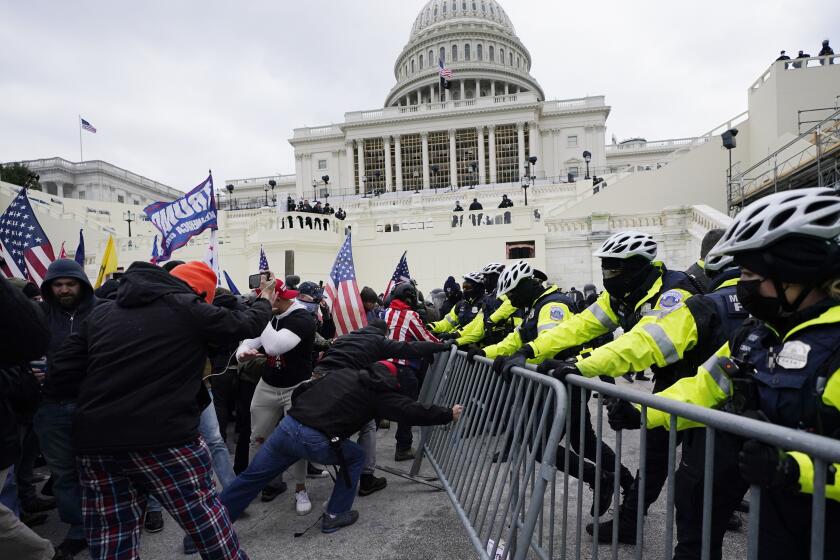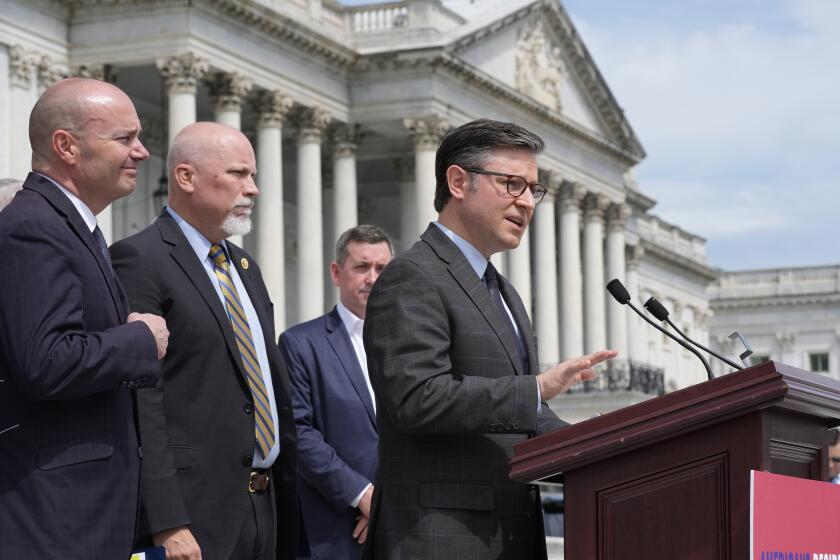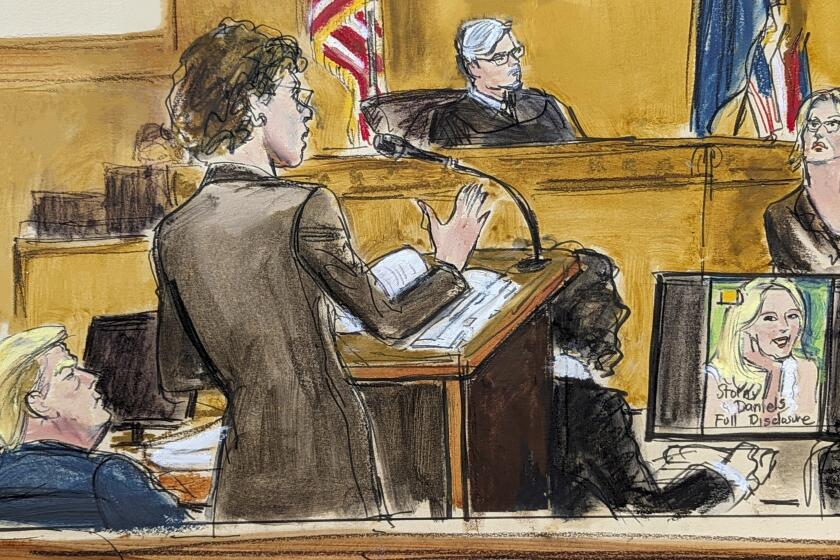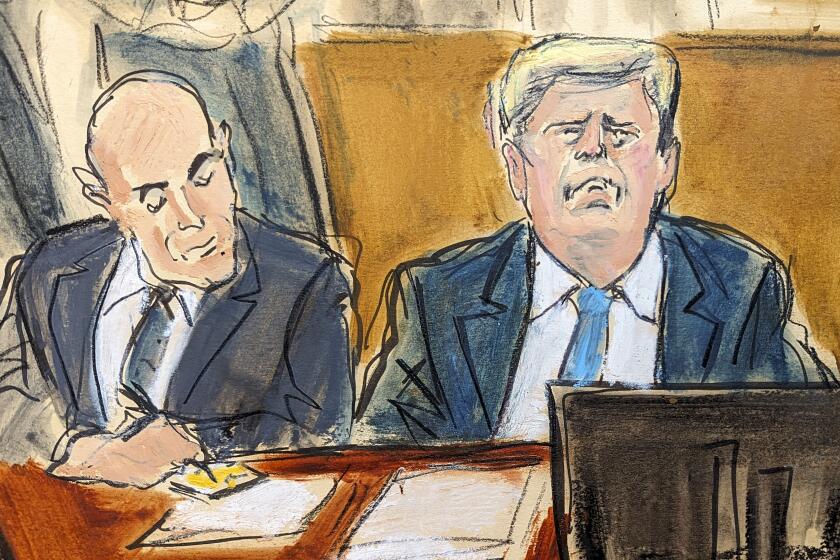Beyond the bailout
President Bush kept a curiously low profile as Treasury Secretary Henry Paulson and Federal Reserve Chairman Ben Bernanke pitched a wildly unpopular plan to buy $700 billion in troubled assets from banks and investment firms. It wasn’t until Wednesday night that he put the presidential bully pulpit to full use, warning a prime-time audience that dramatic steps are needed because “our entire economy is in danger.”
The dearth of White House leadership may explain John McCain’s announcement Wednesday that he was suspending his presidential campaign and heading back to Washington. But as appealing as his call for a bipartisan solution may be, we’d rather see McCain continue to stump for votes than inject himself into the negotiations between the administration and congressional leaders -- a self-serving move apparently designed in part to give Republican members of Congress political cover to vote for the bailout. We hope McCain and Barack Obama will campaign vigorously and debate Friday, as scheduled.
McCain deserves credit for articulating the gravity of the situation far better than Bush had done up to that point. And both he and Obama have stuck their necks out, politically, in support of the central feature of the bailout: using tax dollars to buy mortgages and securities so toxic that there’s no longer a market for them. That’s a risky endeavor whose immediate beneficiary will be financial firms that made foolish bets with borrowed money. Those aren’t the kind of victims that merit our sympathy.
The credit crisis that the bailout is intended to ease is just one consequence of the collapse of the housing bubble, however. Whoever wins the election in November is still going to have to deal with the roots of the problem, which are the reckless or predatory loans that are defaulting in record numbers. The foreclosure rate continues to grow despite lenders’ efforts to rework troubled mortgages, in part because of the legal and financial hurdles preventing them from writing off bad debt and cutting interest rates. Even if McCain and Obama unite with Bush behind a modified version of the bailout bill -- one with better oversight of the Treasury’s purchases and more assurance that taxpayers will recover as much as possible from the investment -- they can and should continue to critique each other’s approach to other elements of the problem. They have very different views about the role of government in the economy, after all. This issue -- and this campaign -- offer Americans the chance to choose.
More to Read
Get the L.A. Times Politics newsletter
Deeply reported insights into legislation, politics and policy from Sacramento, Washington and beyond. In your inbox three times per week.
You may occasionally receive promotional content from the Los Angeles Times.






